第19章 CHAPTER I TWO CHILDHOODS(17)
France!' I cried. 'I see France!'" (he said to me) "as a child cries 'Mother!' when it is hurt." Born to wealth, he was now poor; made to command a regiment or govern a province, he was now without authority and without a future; constitutionally healthy and robust, he returned infirm and utterly worn out. Without enough education to take part among men and affairs, now broadened and enlarged by the march of events, necessarily without influence of any kind, he lived despoiled of everything, of his moral strength as well as his physical. Want of money made his name a burden. His unalterable opinions, his antecedents with the army of Conde, his trials, his recollections, his wasted health, gave him susceptibilities which are but little spared in France, that land of jest and sarcasm. Half dead he reached Maine, where, by some accident of the civil war, the revolutionary government had forgotten to sell one of his farms of considerable extent, which his farmer had held for him by giving out that he himself was the owner of it.
When the Lenoncourt family, living at Givry, an estate not far from this farm, heard of the arrival of the Comte de Mortsauf, the Duc de Lenoncourt invited him to stay at Givry while a house was being prepared for him. The Lenoncourt family were nobly generous to him, and with them he remained some months, struggling to hide his sufferings during that first period of rest. The Lenoncourts had themselves lost an immense property. By birth Monsieur de Mortsauf was a suitable husband for their daughter. Mademoiselle de Lenoncourt, instead of rejecting a marriage with a feeble and worn-out man of thirty-five, seemed satisfied to accept it. It gave her the opportunity of living with her aunt, the Duchesse de Verneuil, sister of the Prince de Blamont-Chauvry, who was like a mother to her.
Madame de Verneuil, the intimate friend of the Duchesse de Bourbon, was a member of the devout society of which Monsieur Saint-Martin (born in Touraine and called the Philosopher of Mystery) was the soul.
The disciples of this philosopher practised the virtues taught them by the lofty doctrines of mystical illumination. These doctrines hold the key to worlds divine; they explain existence by reincarnations through which the human spirit rises to its sublime destiny; they liberate duty from its legal degradation, enable the soul to meet the trials of life with the unalterable serenity of the Quaker, ordain contempt for the sufferings of this life, and inspire a fostering care of that angel within us who allies us to the divine. It is stoicism with an immortal future. Active prayer and pure love are the elements of this faith, which is born of the Roman Church but returns to the Christianity of the primitive faith. Mademoiselle de Lenoncourt remained, however, in the Catholic communion, to which her aunt was equally bound. Cruelly tried by revolutionary horrors, the Duchesse de Verneuil acquired in the last years of her life a halo of passionate piety, which, to use the phraseology of Saint-Martin, shed the light of celestial love and the chrism of inward joy upon the soul of her cherished niece.
After the death of her aunt, Madame de Mortsauf received several visits at Clochegourde from Saint-Martin, a man of peace and of virtuous wisdom. It was at Clochegourde that he corrected his last books, printed at Tours by Letourmy. Madame de Verneuil, wise with the wisdom of an old woman who has known the stormy straits of life, gave Clochegourde to the young wife for her married home; and with the grace of old age, so perfect where it exists, the duchess yielded everything to her niece, reserving for herself only one room above the one she had always occupied, and which she now fitted up for the countess. Her sudden death threw a gloom over the early days of the marriage, and connected Clochegourde with ideas of sadness in the sensitive mind of the bride. The first period of her settlement in Touraine was to Madame de Mortsauf, I cannot say the happiest, but the least troubled of her life.
After the many trials of his exile, Monsieur de Mortsauf, taking comfort in the thought of a secure future, had a certain recovery of mind; he breathed anew in this sweet valley the intoxicating essence of revived hope. Compelled to husband his means, he threw himself into agricultural pursuits and began to find some happiness in life. But the birth of his first child, Jacques, was a thunderbolt which ruined both the past and the future. The doctor declared the child had not vitality enough to live. The count concealed this sentence from the mother; but he sought other advice, and received the same fatal answer, the truth of which was confirmed at the subsequent birth of Madeleine. These events and a certain inward consciousness of the cause of this disaster increased the diseased tendencies of the man himself. His name doomed to extinction, a pure and irreproachable young woman made miserable beside him and doomed to the anguish of maternity without its joys--this uprising of his former into his present life, with its growth of new sufferings, crushed his spirit and completed its destruction.
The countess guessed the past from the present, and read the future.